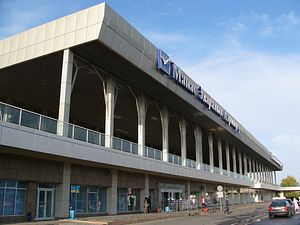Catherine Putz

Last week, Kyrgyzstan apparently suspended issuing tourist visas to citizens of Pakistan, Bangladesh, Nepal, and India. Local media cited a travel agency director and noted that the four countries had been taken off the Kyrgyz Foreign Ministry’s visa regime information list. Previously, citizens of all four South Asia nations were eligible for e-visas and visas on arrival.
The ministry later stated that the issuing of such visas has been suspended to allow for technical work on the e-visa portal. As reported by 24.kg, the stated purpose is “to control the entry and stay of citizens of a number of foreign states, taking into account security and law and order issues.”
The move comes at the confluence of several unrelated currents.
First, the deterioration of the security situation in Afghanistan, followed by the rapid collapse in August of the Afghan government and the dramatic race to evacuate people from the country, set the atmosphere. Although Kyrgyzstan does not share a border with Afghanistan, like the rest of Central Asia, Kyrgyzstan was confronted with questions of whether and how the country would accommodate refugees or evacuation flights. That Kyrgyzstan hosted an important U.S. air base for more than decade certainly added weight to the possibility that Washington would ask for Kyrgyz assistance. Kyrgyzstan pledged to issue 500 student visas to Afghans, but followed the announcement with no concrete action to implement the offer. Notably, Kyrgyzstan was not on the list of a dozen countries that the United States said in August were assisting the evacuation efforts as transit hubs (Kazakhstan, Tajikistan, and Uzbekistan were on the list).
Meanwhile, there has been a pandemic-related boom in arrivals from South Asia en route to the Middle East. The Kyrgyz Foreign Ministry confirmed in late August that there had been an increase in visa applicants from Pakistan, with as many as 7,500 applications processed in July and August. Due to the pandemic, there has not been direct air travel between Pakistan and Saudi Arabia, for example. As a July 27 Reuters report noted:
Saudi Arabia, which bars direct travel from Pakistan, has only approved the AstraZeneca, Pfizer, Moderna and Johnson and Johnson vaccines, so anyone arriving without one of those shots is required to quarantine at a cost many Pakistani workers say they cannot afford.
Some enterprising Pakistanis found a workaround via Kyrgyzstan, to which they could travel with relative ease (with vaccination and testing requirements but no quarantine) and from which they could make the trip to Saudi Arabia. In late August, Saudi Arabia eased some restrictions on direct travel, but only for those fully vaccinated (in Saudi Arabia) and holding residency permits.
Then came posts on social media mistakenly identifying Pakistanis and others from South Asia as Afghans, some alleging that the government was taking in refugees. As journalist Chris Rickleton commented in a late August article for Eurasianet, “Some of the commentary has veered towards racism…”
And the outrage moved beyond social media, with Kyrgyz politicians entering the fray. For example, on September 7 a Kyrgyz MP made his outrage at the influx of Pakistanis — and the de facto status of Kyrgyzstan as a pandemic waystation — clear. MP Beishenaly Nurdinov asked why Kyrgyzstan had “suddenly become so generous” in allowing Pakistanis to come to Kyrgyzstan for two week “observation” before they head off to the United Arab Emirates. “Why do they come to us sick, live at ease, rent apartments,” he reportedly asked — though it’s important to point out that there are no reports of Pakistani citizens arriving “sick.”
Foreign Ministry and the border service officials have tried to clarify that the proper procedures have been followed. Some foreigners arrive with tourism as their purpose and others in transit to third countries; both are perfectly legal.
It seems likely, as countries in the Middle East ease their travel restrictions vis-a-vis Pakistan in particular, that the confusion in Kyrgyzstan will abate as South Asian travelers board direct flights rather than stop-off in Bishkek. But the xenophobic flare-up isn’t going to assist the recovery of the Kyrgyz tourism industry, which arguably should be looking to populous and close-by South Asia for travelers.
No comments:
Post a Comment